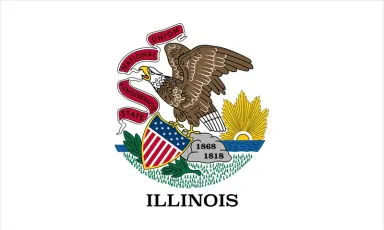New Jersey Trucking Laws

Given that New Jersey is home to several major roadways and sees a lot of commercial vehicle traffic, trucking accidents are a serious problem there. According to the Federal Motor Carrier Safety Administration (FMCSA), there were 4,893 accidents involving large trucks and buses in 2021, which resulted in 2,882 injuries and 70 fatalities.
New Jersey has created laws and regulations governing commercial vehicle operations and liability to avoid vehicular accidents. These cover a wide range of topics, such as the criteria for safety equipment, vehicle maintenance, and driver qualifications.
It can be difficult to navigate the legal complications of a trucking accident, especially for those who have suffered injuries or lost loved ones. If you have been involved in a trucking accident in New Jersey, it is vital to seek the advice of an experienced attorney who can help you understand your legal rights and options.
New Jersey Commercial Driver’s Licenses
A commercial driver’s license (CDL) in New Jersey is required to operate a commercial truck on the roads. To obtain one, an individual with a basic driver’s license must pass a written knowledge test and a driving skills test. They must also be at least 18, have a clean driving record, and pass a medical examination to ensure they are physically fit to operate a commercial vehicle.
The CDL program in New Jersey has three groups based on the weight and type of vehicle being driven: Classes A, B, and C. A Class A CDL is required to operate a combination of vehicles weighing 26,001 pounds or more, whereas a Class B CDL is required to operate a single vehicle weighing 26,001 pounds or more. Meanwhile, a Class C CDL may be required to operate certain types of vehicles that transport hazardous materials and do not meet the weight or size requirements for a Class A or B CDL. Class C is also required to operate a single vehicle with less than 26,001 pounds in weight or a not-for-hire vehicle designed to transport 16 or more passengers, including the driver.
In addition to the licensing requirements, CDL holders are subject to certain regulations regarding vehicle maintenance, safety, and operation. Drivers must conduct a vehicle inspection to check their trucks’ gauges, tires, wheels, trims, brakes, and lights.
CDL drivers are also required to fill out a vehicle condition report form that includes any problems they found or encountered on the vehicles they used after a trip, tour, or day of duty. This report helps the motor carrier determine whether a vehicle needs repair.
New Jersey Truck Size and Weight Regulations
The New Jersey Department of Transportation (NJDOT) has established regulations regarding the size and weight of trucks and other commercial vehicles that operate on the state's roadways. These are designed to promote safety, reduce damage to roads and bridges, and minimize the impact of commercial vehicles on local communities.
In general, New Jersey restricts commercial vehicles to a maximum weight of 80,000 pounds, including the weight of the vehicle and any cargo. The state also sets limits on the length, width, and height of commercial vehicles and the size and weight of individual axle loads. For example, single axles have a weight limit of 20,000 pounds on interstate highways and 22,400 pounds on non-interstate highways, while tandem axles can weigh up to 34,000 pounds.
Trucks and commercial vehicles that exceed these limits may require special permits from the NJDOT, issued on a case-by-case basis. Oversized or overweight vehicles may also be subject to additional fees and taxes.
New Jersey Trucking Hours of Service Laws
Commercial truck drivers in New Jersey should follow federal hours of service regulations, limiting the time they can spend behind the wheel so they can take a break. The FMCSA specifies the maximum number of hours a commercial truck driver can drive and work in a day and week, which include the following:
11-hour driving limit: Drivers can drive a maximum of 11 hours after 10 consecutive hours off duty.
14-hour on-duty limit: Drivers cannot drive beyond the 14th consecutive hour after coming on duty, following 10 consecutive hours off duty. Off-duty time does not extend the 14-hour period.
60/70-hour limit: Drivers cannot drive beyond the 60/70-hour limit for 7/8 consecutive days. A driver may restart a 7/8 consecutive day period after taking 34 or more consecutive hours off duty.
Rest breaks: Drivers must take a 30-minute break after 8 hours of driving.
Commercial truck drivers who violate these regulations can face penalties and fines. For a first offense, there will be a fine of $25, which increases to $50 for subsequent violations. Drivers can also be placed out of service for a period of time.
New Jersey DUI Laws for Truck Drivers
Driving under the influence (DUI) is a serious offense in New Jersey, especially for commercial truck drivers, who face stricter rules than regular motorists. The legal blood alcohol content (BAC) limit for commercial truck drivers is 0.04%, which is half of the legal limit for non-commercial drivers (0.08%).
Commercial truck drivers who are found to have a BAC of 0.04% or higher can be charged with a DUI, even if they show no signs of impairment. DUI convictions can result in fines and the revocation of a CDL. For an initial DUI conviction in a passenger vehicle, a commercial truck driver's basic driver's license will be suspended for three to 12 months, and his CDL will be suspended for one year. The driver may also face fines of up to $500 and up to 30 days in jail.
The consequences become more severe for drivers convicted of a second DUI while driving a passenger vehicle. They will face fines of up to $1,000 and have their basic driver's license suspended for two years. In addition, they can have their CDL permanently revoked, which means they will no longer be able to operate a commercial vehicle, effectively ending the commercial truck driver’s career.
New Jersey Trucking Speeding Law
The trucking speeding law in New Jersey governs the speed limits for commercial trucks on the state’s roads. It is designed to protect the safety of all road users and ensure that large trucks are driven at safe speeds that reduce the risk of accidents.
Under the law, commercial trucks are subject to different speed limits depending on the type of road they are traveling on. Their speed limit on interstate highways and other controlled-access highways is 65 mph, while on all other highways, it is set at 55 mph.
The listed speed limits above are subject to change depending on weather conditions, construction zones, and other factors that may impact safety.
The fines for truck speeding violations can cost anywhere between $85 and $260, depending on how far over the limit the driver is going. For instance, a driver going 10 mph over the speed limit may be fined $95, while someone going over 35 mph the limit may have to pay $260. Additionally, the fines for speeding violations are doubled for a driver going 10 mph or more over a 65+ mph speed limit.
New Jersey Commercial Trucking Insurance Requirements
New Jersey requires commercial trucking companies to carry specific insurance coverage to protect themselves and others in the event of an accident. These insurance requirements are designed to ensure adequate financial resources are available to cover any damages that may result from a commercial trucking accident.
Commercial trucking companies must carry the following minimum insurance coverage:
$750,000 for trucks transporting general freight
$1,000,000 for trucks transporting oil
$5,000,000 for trucks transporting hazardous materials.
Companies have the choice to carry additional insurance coverage that can protect themselves against other risks or liabilities, including cargo, general liability, and workers’ compensation insurance.
Companies must file proof of insurance with the NJDOT to prove that they are complying with the requirements. Failure to maintain the required insurance coverage can result in fines of up to $1,000.
How Much Can One Sue For a Truck Accident in New Jersey?
The amount victims can obtain after figuring in a truck accident depends on factors like their injuries and the specifics of their case.
New Jersey does not have a statutory cap on damages in personal injury cases, including those involving truck accidents. This means there is no limit to the compensation injured parties may receive in a successful lawsuit.
However, there is a cap on punitive damages in cases involving serious or malicious wrongdoing. It limits punitive damages to five times the amount of compensatory damages or $350,000, whichever is greater.
To determine the amount and types of damages in your case and the likelihood of success in a lawsuit, it is important to consult with a qualified personal injury attorney.
New Jersey Statute of Limitations for Truck Accidents
The New Jersey statute of limitations for a personal injury claim arising from a truck accident is two years from the date it occurred.
Note that there are some exceptions to this time limit. For example, if the injured party is a minor at the time of the accident, the statute of limitations may be paused until they reach the age of 18. Additionally, if the defendant is a government entity, the victim is only given 90 days to file a personal injury claim.
Meanwhile, the statute of limitations for property damage claims is six years from the date of the accident. This means a person who suffered property damage in a truck accident must pursue legal action within that timeframe to seek compensation for his or her losses.
New Jersey Is a No-Fault State for Insurance Claims
New Jersey is a no-fault state for insurance claims, which means victims must first seek compensation for their injuries and damages through their insurance company, regardless of who was at fault for the truck accident.
Under the state's no-fault insurance law, drivers are required to carry personal injury protection (PIP) coverage as part of their auto insurance policy. PIP coverage provides benefits to policyholders for medical costs, lost wages, and other expenses related to injuries sustained in a vehicular accident, regardless of who was at fault.
While the no-fault insurance law generally limits the injured person's ability to file a lawsuit against the at-fault driver for their injuries, there are some exceptions to this rule. For example, if a person's injuries are considered serious, he or she may be able to pursue legal action against the at-fault driver for additional damages, such as pain and suffering.
It is crucial for victims to comprehend their legal rights and options because the rules governing no-fault insurance can be complicated.
New Jersey Is a Modified Comparative Negligence State for Trucking Accident Lawsuits
Since New Jersey is a modified comparative negligence state for trucking accident lawsuits, the court will consider each party's level of fault if a plaintiff seeks compensation for his or her incurred injuries.
Victims’ recovery in trucking accident lawsuits may be reduced by the percentage of fault attributed to them. For instance, if they are found to be 40% to blame for the accident, the same percentage will be deducted from their recovery.
However, there are limits to New Jersey's comparative negligence law. In order to recover damages in a trucking accident lawsuit, one must be less than 50% at fault for the accident. Being at least 50% responsible for the accident means one is barred from recovering any damages at all.
Average Settlement for New Jersey Trucking Accident Lawsuits
The average settlement for trucking accident lawsuits in New Jersey is dependent on different elements surrounding each case, including how serious a victim’s injuries are and the percentage of responsibility each party has.
As discussed above, a plaintiff's recovery in a trucking accident lawsuit may be reduced by his or her percentage of fault. Being 20% responsible for an accident and having damages valued at $100,000 means one’s final recovery amount will just be $80,000. This rule applies to both economic and non-economic damages.
Additionally, since commercial trucking companies are required to carry minimum liability insurance, their insurance policy should cover the injured party's damages up to the policy limits if they are found to be at fault for the accident.
Legal Resources for New Jersey Trucking Accident Victims
New Jersey State Bar Association Lawyer Referral Service
The New Jersey State Bar Association Lawyer Referral Service refers to a list of county bar associations and their contact details. Truck accident victims may contact their local county bar association to help them navigate the complex legal system, understand their rights, and advocate for them in court.
New Jersey State Bar Association Free Legal Answers
The NJSBA Free Legal Answers program is an online platform for low-income truck accident victims in the state who need legal guidance but may not have the means to hire an attorney. It allows individuals to submit questions to volunteer attorneys and receive free legal advice.
New Jersey Department of Banking and Insurance
The New Jersey Department of Banking and Insurance regulates and oversees insurance carriers that provide coverage to trucking companies, ensuring that they comply with state laws and regulations. It has resources and tools that can be used by trucking companies and other commercial vehicle operators to help them navigate the insurance landscape and make informed decisions about the coverage they need.
New Jersey Commercial Driver License Manual
The New Jersey CDL Manual contains comprehensive information on the rules and procedures for obtaining and maintaining a CDL in the state. From general licensing requirements to specific regulations, everything a driver needs to know to safely and legally operate a commercial vehicle in New Jersey is in the CDL manual.
New Jersey Motor Carrier Safety Assistance Program
The New Jersey Motor Carrier Safety Assistance Program is implemented by the NJDOT to improve road safety. It includes a range of initiatives to help ensure that commercial vehicles operating in the state are safe, well-maintained, and properly operated by qualified drivers. These initiatives cover vehicle inspections, driver safety programs, and education and outreach efforts.
511NJ Travel Information Service
511NJ is a service by the NJDOT that provides motorists with real-time traffic and transportation information. It delivers up-to-date data on traffic conditions, road closures, construction alerts, and other traffic-related matters to help drivers and commuters plan their trips and navigate the state's roadways safely and efficiently.
Expertise.com StaffAuthor
Step into the world of Expertise.com, your go-to hub for credible insights. We don't take accuracy lightly around here. Our squad of expert reviewers, each a maestro in their field, has given the green light to every single article you'll find. From rigorous fact-checking to meticulous evaluations of service providers, we've got it all covered. So feel free to dive in and explore. The information you'll uncover has been stamped with the seal of approval by our top-notch experts.




